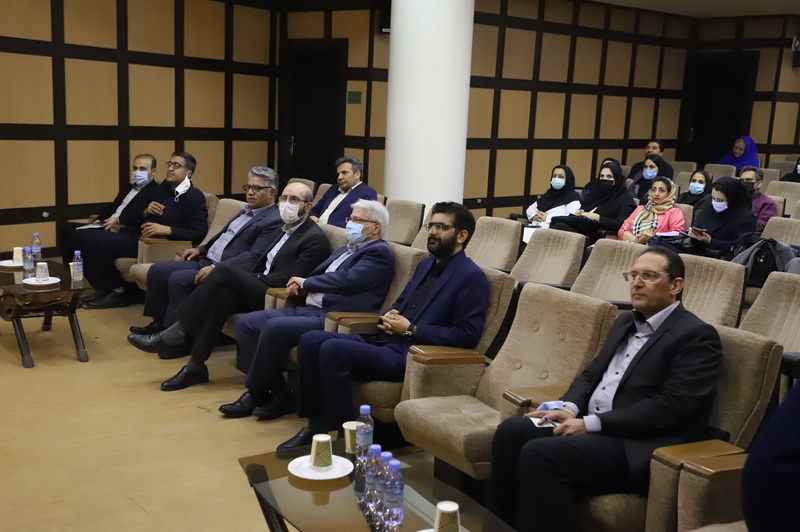Passive Defense Conference
One Day Conference about Passive Defense in Health System in Islamic Republic of Iran: Challenges and Solutions
The conference started by defining passive defense and the difference between passive and active defense. In this one day conference, Dr. Nadafi, Dean of the School of Public Healthshowed the importance of different departments that are present in the School of Public Health at Tehran University of Medical Sciences that all can help in passive defense and in setting solutions to protect the country from any unarmed enemy’s attack. Passive defense is not one domain, rather it is multi-disciplinary. Therefore, it is a wide domain that needs in-depth understanding and planning. Also, Dr. Abbas Ostad Taghizadeh, head of Department of Health in Emergencies and Disasters presented the main goals of this conference.

Concerning biological defense, Dr. Mohammad Kariminia, advisor to the Vice President of Health Deputy, Tehran University of Medical Sciences, in biodefense matters noted the history of the organization that goes back to 70 years ago. Actions that I.R.Iran conducted during COVID-19 pandemic and other previous epidemics were highlighted. In addition, what other countries are doing and taking bad advantage of education, to create viruses and spread them worldwide such as U.S. labs that are present around Russia and I.R.Iran, was explained. In this session, one of the main lessons learned was: smallest mistake can lead to very big effects and any small intervention can lead to prevention.
In the next session, radiation was mentioned by Dr. Zohra Begdeli, passive defense advisor to theMinistry of Health. It was surprising for the attendees how many different types of radiation are present and we face in our everyday life. The most challenging thing about radiation is that whoever is exposed to it, cannot be easily detected. The reason behind this is that radiation is not visible compared to a chemical or any other contamination or disaster. After that, the chemical sector was discussed by Dr. Ahmed Akrami, deputy coordinator of theIran's Passive Defense Organizationabout chemical threats. This includes oxygen tanks that are present in hospitals and how critical it is and all medicines which are chemical-based and the importance of safety in this domain. Also, the expert highlighted how risky chlorine is and its usage in different vital domains.
Mr. Hamidreza Kavousi, Assistant Advisor for Security and Cyber Defense of theIran's Passive Defense Organizationcontinued, "The most important domain that is included in all others is cyber security. No matter in what domain we work, cyber security should be in place." He added that many emergencies would have been prevented, if cyber security was taken into consideration ahead of time. It includes the systems in nuclear plants to patient information in hospitals. Cyber security protects from any type of cyber-attack, and that this is a new type of war nowadays.
At the end of this conference, Dr. Ali Nasiri, the head of the Crisis Prevention and Management Organization of Tehran, gave a speech with the subject of Tehran's experiences in civil defense regarding the potentially safe design of urban services in order to replace low-risk services instead of providing services with a higher risk level, as well as urban defense in the field of transportation infrastructure.
Authors: Lara Hamdanieh, Dr. Kiyoumars Allahbakhshi

Send to friends